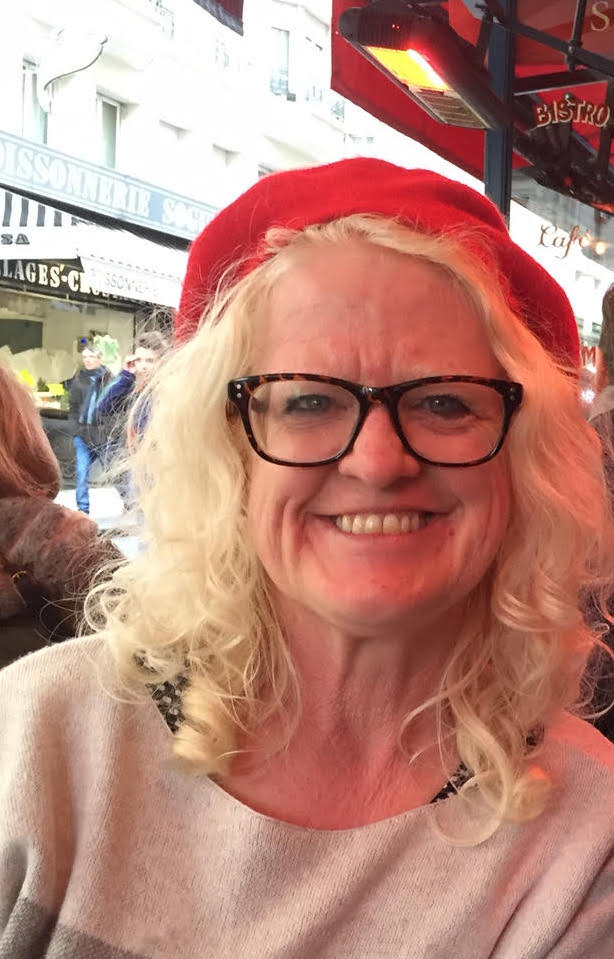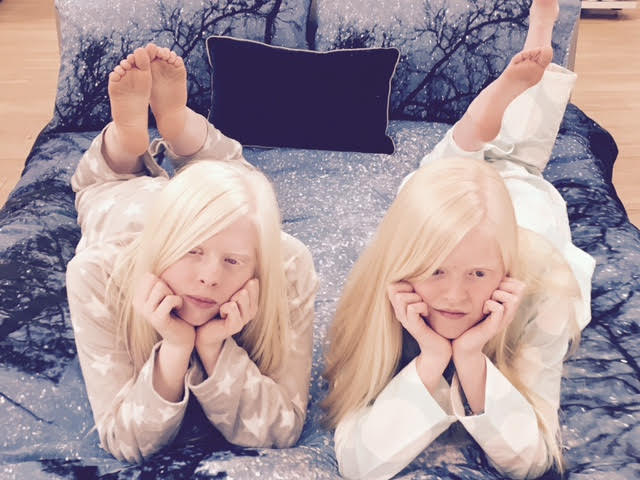Albinism
The Albinism Fellowship of Australia (AFA) http://albinismaustralia.org/ is a national, non-profit organization established in 2005. The fellowship is run by volunteers who all have been personally touched by albinism in some way. The AFA’s key purpose is to provide support, education and fellowship to those with albinism, parents of children with albinism as well as their families and friends. While the albinism community in Australia is only small, the AFA provides a united voice to encourage productive developments and support within business, government and media.
- Details
- In Albinism
- /
 Albinism Fellowship members including AFA President Elizabeth Beales (second from right)About 100 individuals and family members affected by albinism will gather in Adelaide this weekend for a national conference about the causes, challenges and achievements of this often-misunderstood genetic condition.
Albinism Fellowship members including AFA President Elizabeth Beales (second from right)About 100 individuals and family members affected by albinism will gather in Adelaide this weekend for a national conference about the causes, challenges and achievements of this often-misunderstood genetic condition.
International and Australian speakers at the eighth national Albinism Conference will dispel common misconceptions about albinism which range from “all albinos have pink eyes” to the unlikelihood of an albino assassin as portrayed in The Da Vinci Code.
Albinism, a genetic condition caused by a lack of pigment in the skin, hair and eyes, is linked to pale skin, white hair and poor eyesight, often in the range of legal blindness. With an occurrence of one in 17,000, Australia has an estimated 1500 persons with albinism.
Albinism Fellowship of Australia President Elizabeth Beales said the truth about people with albinism was actually much more interesting than the ridiculous myths that abound. “Dan Brown’s novel, The Da Vinci Code, was just plain stupid – most people with albinism have very poor eyesight, which really limits your ability to succeed as an assassin,” she said.
- Details
- In Albinism
- /
 Albinism Fellowship of Australia President Elizabeth BealesNearly 1500 Australians with albinism will tomorrow – June 13 - recognise International Albinism Awareness Day by calling for greater government action on the plights of persons with albinism in sub-Saharan Africa.
Albinism Fellowship of Australia President Elizabeth BealesNearly 1500 Australians with albinism will tomorrow – June 13 - recognise International Albinism Awareness Day by calling for greater government action on the plights of persons with albinism in sub-Saharan Africa.
With a frequency of about one in 17,000, an estimated 1470 Australians are affected by albinism, a genetic condition that arises from a lack of pigment in the skin, hair and eyes, typically causing pale skin, white hair and poor eyesight, often in the range of legal blindness. Despite these challenges, Australians with albinism work in a wide range of professions, with members of the community including a State MP, a doctor, business owners, a professional singer and an astronomer.
Tomorrow, throughout Australia, children with albinism and their parents will use International Albinism Awareness Day to share with classmates their experiences of the world, why they avoid the sun and the challenges of limited vision. Many of the Albinism Fellowship of Australia adults are busy organising the bi-annual Albinism National Conference which this year is running in Adelaide from August 23-25.
Albinism Fellowship of Australia President Elizabeth Beales said its members also joined with their fellows globally to denounce ongoing attacks targeting persons with albinism in several countries in sub-Saharan Africa. “While these atrocities seem far away and inconceivable for most of us, we nonetheless are aware that one slight change in location would have changed our destiny,” she said.
- Details
- In Albinism
- /
 Sammy McCombe and Lucy Carpenter
Sammy McCombe and Lucy Carpenter
An initiative to highlight the achievements of people with albinism will tomorrow reach out through communities nation-wide as Australians celebrate the third World Albinism Awareness Day.
With a frequency of one in 17,000, more than 1300 Australians are affected by albinism, a genetic condition that arises from a lack of pigment in the skin, hair and eyes, typically causing pale skin, white hair and poor eyesight, often in the range of legal blindness.
Tomorrow, throughout Australia, children with albinism and their parents will use World Albinism Awareness Day to share with classmates their experiences of the world, why they avoid the sun and the challenges of limited vision.
Australians with albinism work in a wide range of professions, with members of the community including a State MP, a doctor, business owners, a professional singer and an astronomer.
In Geelong, two schoolgirls born with oculocutaneous albinism, Sammy McCombe, 12, and Lucy Carpenter, 14, recently launched an Instagram account to use fashion to raise awareness of the condition. The duo use it to model the latest clothing to show people that different is beautiful. Their Instagram account @Lucy_and_sammy has already attracted more than 4000 followers! “I have been very surprised at how many people loved our photos and gave us great feedback,” revealed Sammy (above, right).
More News...
- Australians gather to throw light on albinism (08 June 2016)
- ABC Radio asks John Harris about albinism (22 September 2015)
- Albinism conference runs this weekend in Cairns (21 September 2015)
- Australia celebrates first Albinism Awareness Day (08 June 2015)
- Grateful mum gives back with Mack’s Mates (13 October 2014)
- ‘The Voice’ soulful singer serenades Albinism forum (09 October 2013)
- World experts reveal new albinism insights this weekend (08 October 2013)
- Fun event reaches out to Pacific Islanders with albinism (20 March 2012)
Off the Cuff

Simon Hackett speaks about Formula E racing on ABC Radio Adelaide
Australian renewable energy investor Simon Hackett last week spoke to Radio ABC Adelaide's Afternoons host Sonya Feldhoff about the benefits for replacing the cancelled Adelaide 500 motor race with a...
Read more
Seven simple steps for mental health in time of coronavirus
After the summer bushfires, the coronavirus pandemic and associated economic shutdown, “unprecedented” must be a standout favourite for Macquarie Dictionary’s Word of the Year for 2020. For the first time...
Read more
John Harris talks (a bit) about International Albinism Awareness Day on ABC Radio
John Harris, who has the honorary role of PR guy for the Albinism Fellowship of Australia, was interviewed by Peter Goers on the Evenings show of ABC Radio Adelaide on...
Read more
Start-ups are key to the future of everything
Nigel Lake, Executive Chair of global business advisory firm Pottinger, will tell this week's Myriad start-ups festival in Brisbane, running May 16-19, that Australia needs start-ups to protect its prosperity. Pottinger...
Read moreContact
Impress Media Australia
P: +61 8 8431 4000
E: john@impress.com.au
W: www.impress.com.au
Street:
Impress Media Australia
313 Portrush Road,
Norwood SA 5067
Click here for our location
Postal:
Impress Media Australia
Box 95, Kensington Park
South Australia 5068
